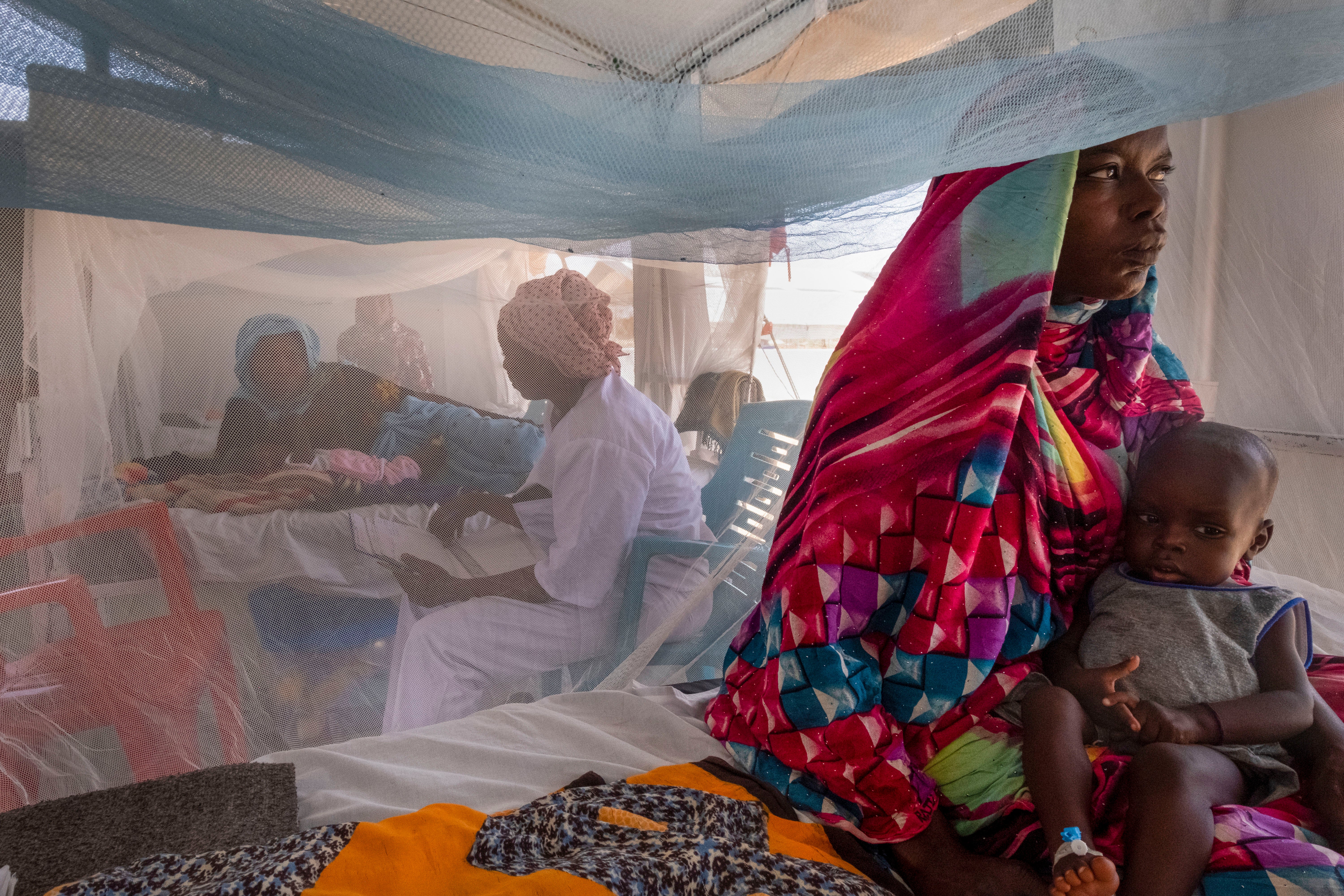UN warns Sudan paramilitary forces are encircling a capital in western Darfur, urges against attack
The United Nations says Sudanese paramilitary forces are encircling the only capital they haven’t captured in the western Darfur region, warning that an attack would have “devastating consequences” for the city’s 800,000 inhabitants

Your support helps us to tell the story
From reproductive rights to climate change to Big Tech, The Independent is on the ground when the story is developing. Whether it's investigating the financials of Elon Musk's pro-Trump PAC or producing our latest documentary, 'The A Word', which shines a light on the American women fighting for reproductive rights, we know how important it is to parse out the facts from the messaging.
At such a critical moment in US history, we need reporters on the ground. Your donation allows us to keep sending journalists to speak to both sides of the story.
The Independent is trusted by Americans across the entire political spectrum. And unlike many other quality news outlets, we choose not to lock Americans out of our reporting and analysis with paywalls. We believe quality journalism should be available to everyone, paid for by those who can afford it.
Your support makes all the difference.Sudanese paramilitary forces are encircling the only capital they haven’t captured in the western Darfur region, the United Nations said Friday, warning that an attack would have “devastating consequences” for the city's 800,000 inhabitants.
At the same time, the U.N. said, the rival Sudanese Armed Forces “appear to be positioning themselves.”
U.N. Secretary-General António Guterres again called on the paramilitary Rapid Support Forces and government forces to refrain from fighting in the North Darfur area around its capital, El Fasher, U.N. spokesman Stephane Dujarric said.
The year-old war in Sudan between rival generals from the paramilitary and government forces who are vying for power has sparked “a crisis of epic proportions,” U.N. political chief Rosemary DiCarlo said last Friday. It has been fueled by weapons from foreign supporters who continue to flout U.N. sanctions aimed at helping end the conflict, she said, stressing that “This is illegal, it is immoral, and it must stop.”
The U.N. humanitarian office said Friday that escalating tensions and clashes around El Fasher over the last two weeks have already resulted in the displacement of 40,000 people, as well as a number of civilian casualties.
“The security situation has effectively cut off humanitarian access to El Fasher,” the Office for the Coordination of Humanitarian Affairs known as OCHA, said.
According to humanitarian officials, El Fasher is an important location to reach other parts of the vast Darfur region, including for aid shipments from neighboring Chad and via a northern route from Port Sudan on Sudan’s northeast coast.
“Currently, more than a dozen trucks with life-saving supplies for 122,000 people are stranded in Ad Dabbah in neighboring Northern State, as they cannot move onward to El Fasher due to insecurity and lack of guarantees for safe passage,” OCHA said.
Dujarric said the secretary-general’s personal envoy for Sudan, Ramtane Lamamra, is engaging with the rival parties to de-escalate tensions, which are reported to have dramatically escalated.
OCHA also said it’s “imperative that the parties allow safe passage for civilians to leave El Fasher for safer areas.”
Sudan plunged into chaos in mid-April 2023, when long-simmering tensions between its military, led by Gen. Abdel Fattah Burhan, and the Rapid Support Forces paramilitary commanded by Mohammed Hamdan Dagalo broke out into street battles in the capital, Khartoum. Fighting has spread to other parts of the country, especially urban areas and the western Darfur region.
The U.N.’s DiCarlo painted a dire picture of the war’s impact — over 14,000 dead, tens of thousands wounded, looming famine with 25 million people in need of life-saving assistance, and over 8.6 million forced to flee their homes.
During the war, the Arab-dominated Rapid Support Forces have carried out brutal attacks in Darfur on ethnic African civilians, especially the ethnic Masalit, and have taken control of most of the vast region – with El Fasher its newest target.
Two decades ago, Darfur became synonymous with genocide and war crimes, particularly by the notorious Janjaweed Arab militias, against populations that identify as Central or East African.
That legacy appears to have returned, with the International Criminal Court’s prosecutor, Karim Khan, saying in late January there are grounds to believe both sides may be committing war crimes, crimes against humanity or genocide in Darfur.
The Rapid Support Forces were formed from Janjaweed fighters by former Sudanese President Omar al-Bashir, who ruled the country for three decades before being overthrown during a popular uprising in 2019. He is wanted by the International Criminal Court on charges of genocide and other crimes during the conflict in Darfur in the 2000s.